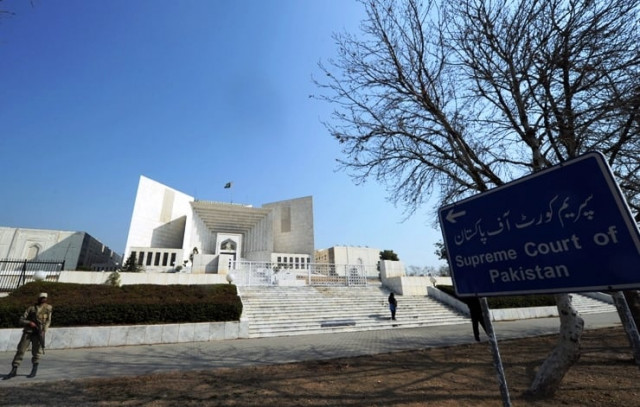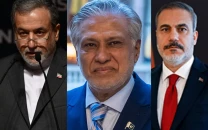New turn: Presidency made party in Asghar Khan case
Chief justice says no political cell should operate at Presidency; president’s secretary could be called before...

The Supreme Court (SC) on Thursday accepted former air chief Asghar Khan’s request to make the office of the President of Pakistan a party in the case pertaining to the Inter-Services Intelligence (ISI) funding politicians in the 1990 elections.
During the proceedings, Chief Justice Iftikhar Muhammad Chaudhry observed no political cell should operate at the presidency since the president is the head of the country and the supreme commander of its armed forces.
He said documents obtained by the court revealed that a political cell worked under then president Ghulam Ishaq Khan during the 1990 elections. The Chief Justice added that former president Farooq Leghari, former premier Benazir Bhutto and Maj Gen Naseerullah Babar held meetings regarding the cell and forging an alliance between political parties during their tenure.
The SC’s short order held it appropriate to issue notices to the president’s secretary in this regard. “We consider it appropriate to implead the presidency through the Secretary to President of Pakistan,” the court order read.
The court directed its office to send a copy of this order and other unclassified documents in the case to the president’s office, along with a letter informing them that the president’s secretary had been made a party in the case. It also directed appropriate arrangements for the president’s secretary before court if the latter desired or was advised to do so.
Asghar Khan’s counsel Salman Akram Raja consented to filing the application to make the president’s office a respondent in the case. Agreeing with the court’s decision, Raja said it is appropriate to issue notices to the president’s office since the matter was directly linked with it.
Independent observers say the court’s decision has a direct impact on incumbent President Asif Ali Zardari, who already faces legal proceedings over occupying both the seat of the President of Pakistan and the co-chairman of the Pakistan Peoples Party.
Since the president is the supreme commander of the country’s armed forces, his involvement in political activities will have a direct influence on the services’ chiefs, Justice Khilji Arif Hussain had observed during the proceedings.
At the same time, Roedad Khan – who along with Ijlal Haider Zaidi headed the presidency’s political cell during Ghulam Ishaq Khan’s tenure – also requested the court to make him a party in the case on Thursday. His request was granted and he was asked to appear before the court in the next hearing.
“If Ijlal Haider Zaidi comes forward to become a party in the case, we can consider his application too,” CJ Chaudhry told Akram Sheikh, former army chief Gen Aslam Beg’s counsel.
Meanwhile, Defence Secretary Lt Gen Asif Yasin Malik submitted a signed letter to the court maintaining there was no political cell operating in the ISI.
Similarly, Interior Secretary Khawaja Sadiq Akbar submitted a statement informing the court that the Intelligence Bureau (IB) is under the Cabinet Division’s control and as such the department issued a notice to the Cabinet Secretary along with copies of orders and directions to certify whether a political cell operated in the agency currently or in the past. The Cabinet Secretary was asked to submit a reply to the SC Registrar before the next hearing.
The court also expressed concern over the absence of the federation’s lawyers from the case hearing. It adjourned the case till October 15.
Published in The Express Tribune, October 5th, 2012.



















COMMENTS
Comments are moderated and generally will be posted if they are on-topic and not abusive.
For more information, please see our Comments FAQ